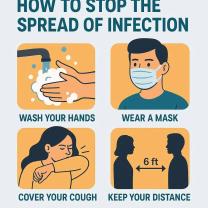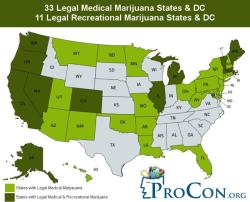Why does coughing hurt your chest?
Coughing can cause chest pain for several reasons, and the severity of the pain can vary depending on the underlying cause and the individual's sensitivity. Here are some common reasons why coughing can hurt your chest:
Muscle Strain: When you cough, the muscles in your chest and abdomen contract forcefully to expel air and clear irritants from your airways. Frequent or severe coughing can strain these muscles, leading to discomfort or pain in the chest.
Inflammation: Coughing is often a response to irritation or inflammation in the airways. Conditions like bronchitis, pneumonia, or asthma can cause inflammation in the bronchial tubes or lung tissue. Coughing in the presence of inflammation can exacerbate chest discomfort.
Chest Infections: Infections in the respiratory tract, such as bronchitis or pneumonia, can lead to chest pain when you cough. The infection causes inflammation and increased mucus production, triggering coughing as the body attempts to clear the airways.
Gastroesophageal Reflux Disease (GERD): GERD is a condition in which stomach acid flows back into the esophagus, potentially causing irritation and inflammation. Coughing can worsen GERD symptoms and lead to chest discomfort, often described as a burning sensation (heartburn).
Costochondritis: Costochondritis is inflammation of the cartilage that connects the ribs to the breastbone (sternum). Coughing can worsen this condition, resulting in sharp, localized chest pain.
Injury or Trauma: If you've recently experienced chest trauma or injury, coughing may exacerbate pain in the injured area. This could include muscle strains, rib fractures, or chest wall injuries.
Excessive Coughing: Persistent or forceful coughing, such as in chronic cough conditions like chronic obstructive pulmonary disease (COPD) or whooping cough, can strain the chest muscles and lead to chest discomfort.
Anxiety and Stress: In some cases, anxiety or stress can cause muscle tension and shallow breathing, which may lead to a chronic cough and chest discomfort.
Remedies for Chest Pain from Coughing:
The treatment of chest pain from coughing depends on the underlying cause. Here are some general remedies and tips to help alleviate chest pain:
Address the Underlying Cause: If you have a respiratory infection, asthma, GERD, or another underlying condition, seek medical treatment to address the root cause of your cough and chest pain.
Cough Suppressants: Over-the-counter cough suppressants may help reduce the frequency and severity of coughing. However, consult a healthcare professional before using them, as coughing is often a necessary mechanism to clear the airways.
Pain Relief Medications: Over-the-counter pain relievers like ibuprofen or acetaminophen can help alleviate chest pain and reduce inflammation.
Hydration: Staying well-hydrated can help keep mucus thin and easier to expel, reducing the need for forceful coughing.
Rest: Adequate rest allows your body to heal and recover from any underlying illness or muscle strain.
Warm Compress: Applying a warm compress to the chest area may help relax muscles and reduce discomfort.
Avoid Triggers: If your cough is triggered by environmental factors such as smoke or allergens, try to minimize exposure to these triggers.
Breathing Techniques: Practice deep breathing and relaxation techniques to reduce anxiety-induced coughing and muscle tension.
If you experience severe or persistent chest pain, especially if it's accompanied by symptoms like shortness of breath, high fever, or coughing up blood, seek immediate medical attention, as these could be signs of a serious medical condition. A healthcare professional can provide a proper diagnosis and recommend appropriate treatment.
Aching Chest from Coughing: Why It Happens and What to Do
Coughing is a natural reflex that helps to clear the airways of mucus and irritants. However, coughing too hard or too often can irritate the muscles and tissues in the chest, causing pain.
There are a number of reasons why you might experience aching chest pain after coughing:
- Muscle strain: Coughing is a strenuous activity that can strain the muscles in the chest, especially the intercostal muscles, which are located between the ribs.
- Inflammation: Coughing can also irritate the lining of the airways, causing inflammation. This inflammation can lead to chest pain and discomfort.
- Pleurisy: Pleurisy is inflammation of the pleura, which is the thin membrane that lines the lungs and the inside of the chest cavity. Pleurisy can cause sharp, stabbing chest pain that is worse when coughing or breathing deeply.
- Pneumonia: Pneumonia is an infection of the lungs. It can cause a variety of symptoms, including chest pain, cough, fever, and shortness of breath.
- Other medical conditions: Certain medical conditions, such as asthma, heart disease, and pulmonary embolism, can also cause chest pain, especially when coughing.
What to Do
If you are experiencing aching chest pain after coughing, there are a few things you can do:
- Rest: Resting your chest muscles can help to reduce inflammation and pain.
- Apply heat or ice: Applying heat or ice to your chest can help to relieve pain and inflammation.
- Drink plenty of fluids: Drinking plenty of fluids can help to loosen mucus and make it easier to cough up.
- Over-the-counter pain relievers: Over-the-counter pain relievers, such as ibuprofen or acetaminophen, can help to reduce pain and inflammation.
If you have chest pain that is severe, persistent, or accompanied by other symptoms, such as fever, shortness of breath, or lightheadedness, you should see a doctor to rule out any underlying medical conditions.
Cough-Related Chest Pain: Prevention
There are a few things you can do to prevent cough-related chest pain:
- Treat respiratory infections promptly: Respiratory infections, such as colds and bronchitis, are a common cause of coughing. Treating these infections promptly can help to prevent coughing from becoming severe and causing chest pain.
- Avoid irritants: Avoid irritants that can trigger coughing, such as smoke, dust, and pollen.
- Use a humidifier: Using a humidifier can help to add moisture to the air and make it easier to cough up mucus.
- Get plenty of rest: Getting plenty of rest can help your body to heal and reduce inflammation.
If you have a chronic cough, talk to your doctor about ways to manage your cough and prevent chest pain.













